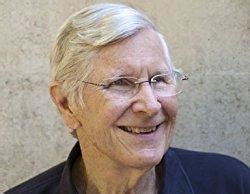A Quote by Christian Nestell Bovee
We may learn from children how large a part of our grievances is imaginary. But the pain is just as real.
Related Quotes
You know, Hillary Clinton's out there saying, we need smart diplomacy. We need to do smart power. And that means empathizing with our enemy, understanding their grievances, like we understand the grievances of homosexuals, like we understand the grievances of African-Americans. We must learn to understand the grievances of ISIS.
Even the very youngest children already are perfectly able to discriminate between the imaginary and the real, whether in books or movies or in their own pretend play. Children with the most elaborate and beloved imaginary friends will gently remind overenthusiastic adults that these companions are, after all, just pretend.
One might think this means that imaginary numbers are just a mathematical game having nothing to do with the real world. From the viewpoint of positivist philosophy, however, one cannot determine what is real. All one can do is find which mathematical models describe the universe we live in. It turns out that a mathematical model involving imaginary time predicts not only effects we have already observed but also effects we have not been able to measure yet nevertheless believe in for other reasons. So what is real and what is imaginary? Is the distinction just in our minds?
As you consider whether to move a child into formal academic training, remember that we want our children to do more than just learn how to read and write; we want them to learn in such a way that they become lifelong readers and writers. If we push our children to start learning these skills too far ahead of their own spontaneous interest and their capacity, we may sacrifice the long-range goal of having them enjoy such pursuits.
At times it may seem worse - harder, at least - to live through the despair of this loss without the temporary comfort of our addictive behaviour. We cannot drown our sorrows. We must face the fact that we don’t know, really, where we are, how we got here, how long the pain will last, or how to move past it. That uncertainty may be the most painful part of not knowing a God: no one is there to reassure us that a God will take the pain and confusion away. We simply don’t know. And we have no way to numb ourselves or to forget the condition we’re in.
In addition to pumping the blood of life within our bodies, we may think of the heart as a belief-to-matter translator. It converts the perceptions of our experiences, beliefs, and imagination into the coded language of waves that communicate with the world beyond our bodies. Perhaps this is what philosopher and poet John Mackenzie meant when he stated, "The distinction between what is real and what is imaginary is not one that can be finely maintained ... all existing thing are ... imaginary."
Unexplained pain may sometimes direct our attention to something unacknowledged, something we are afraid to know or feel. Then it holds us to our integrity, claiming the attention we withhold. The thing which calls our attention may be a repressed experience or some unexpressed and important part of who we are. Whatever we have denied may stop us and dam the creative flow of our lives. Avoiding pain, we may linger in the vicinity of our wounds, sometime for many years, gathering the courage to experience them.
The world is part of our own self and we are a part of its suffering wholeness. Until we go to the root of our image of separateness, there can be no healing ... Only when our feet learn once again how to walk in a sacred manner, and our hearts hear the real music of creation, can we bring the world back into balance.


































